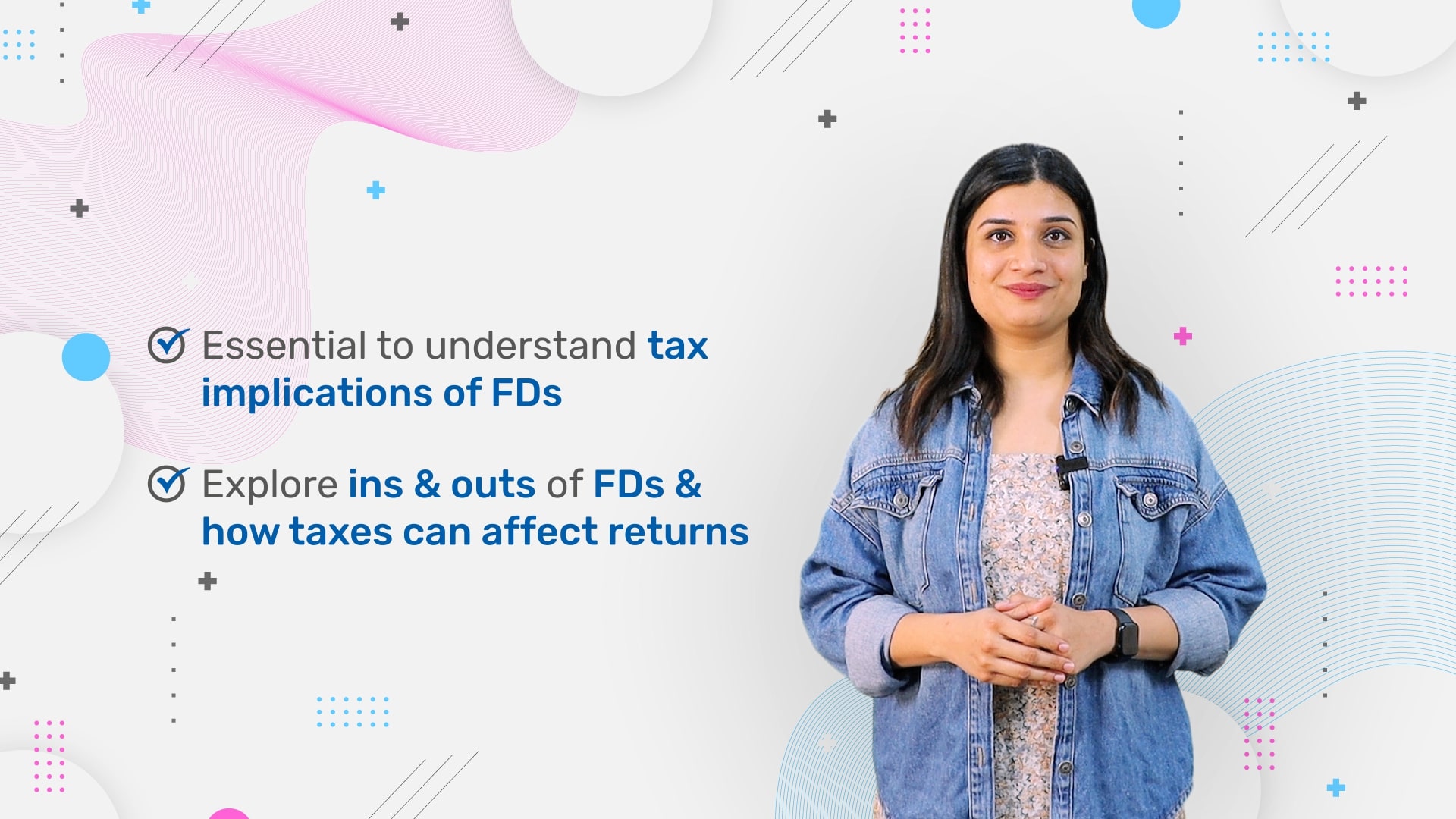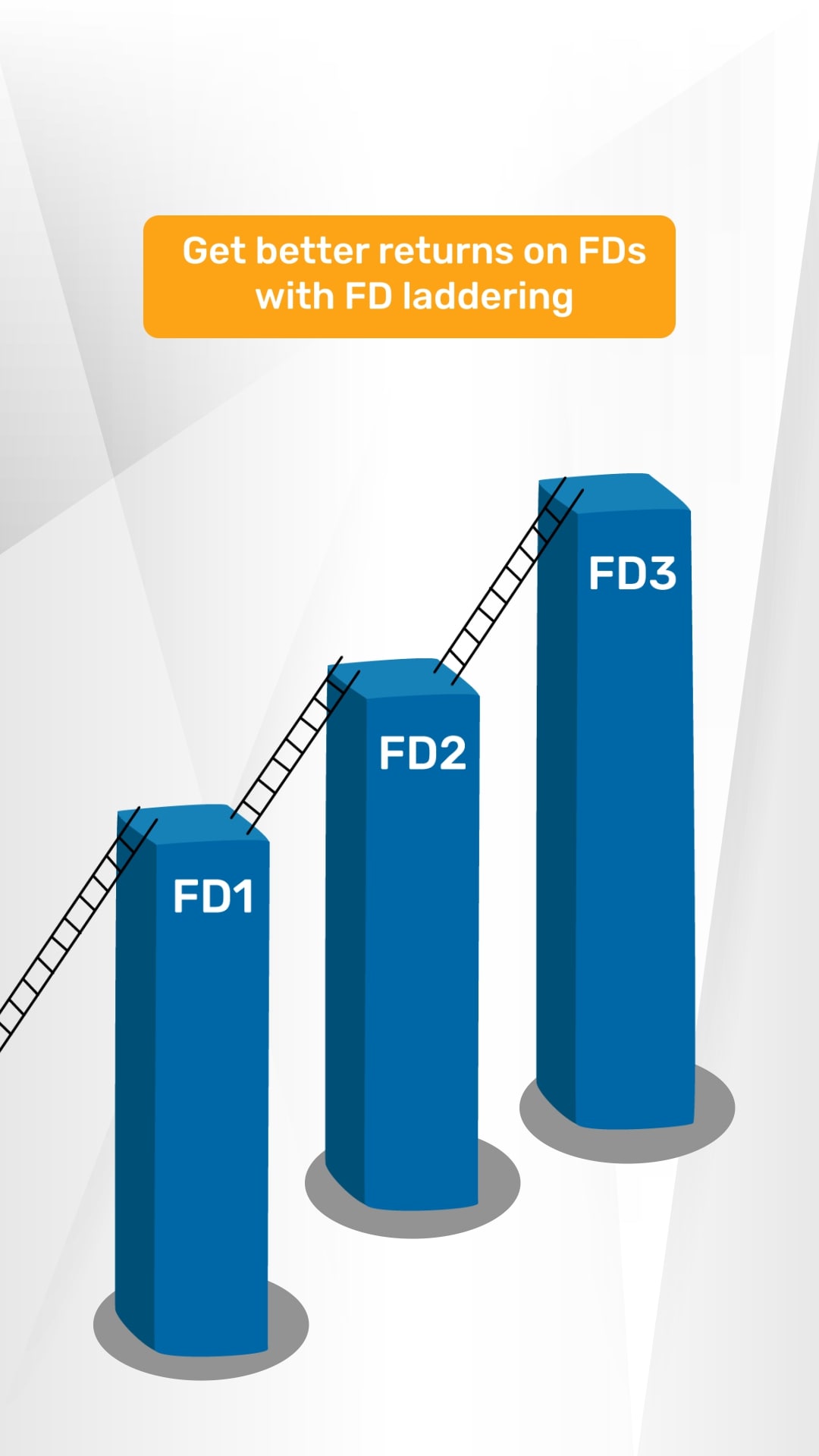Understanding Fixed Deposits & Their Tax Implications
Fixed deposits could offer a reliable way to ensure financial stability. Therefore, understanding the tax implications might be crucial to maximise your returns. In this video, we’ll delve into the basics of fixed deposits and the tax considerations that might impact your earnings.
When it comes to FD taxation, two main aspects stand out: tax on interest income and tax treatment of the maturity amount. Interest income from fixed deposits is taxable based on your income tax slab. This is usually categorised as "Income from Other Sources" on your tax return. Additionally, if your interest income surpasses Rs. 40,000 in a financial year, the bank will deduct a 10% TDS or Tax Deducted at Source. This is adjusted against your annual tax liability. However, the principal amount you invest remains tax-free upon maturity.
This video also covers strategies that could help reduce your tax burden. We’ll talk about options like tax-saver FDs, spreading investments, and exploring senior citizen benefits. These options might offer potential ways to manage taxes on FD returns. Fixed deposits might be beneficial if you seek stability while benefiting from tax-conscious planning.

Key Takeaways
FD interest is usually taxed based on your income slab and categorised as "Income from Other Sources" in your tax returns
If total interest exceeds Rs. 40,000, a 10% TDS could be applicable which is adjustable against your annual tax liability
The maturity amount is tax-free, as tax on accrued interest is paid yearly
Tax-saver FDs offer deductions of up to Rs. 1.5 Lakhs under Section 80C with a 5-year lock-in period
Spreading FDs across institutions could keep interest per FD below the TDS limit (Rs. 40,000 or Rs. 50,000)
Investing in family members' names may reduce overall tax by leveraging their lower tax slabs
Senior citizens could benefit from higher interest rates and specific tax advantages tailored to their age group
Cumulative FDs accumulate interest, taxed as a lump sum at maturity and could offer tax advantages
What to Watch Next
Bites
































